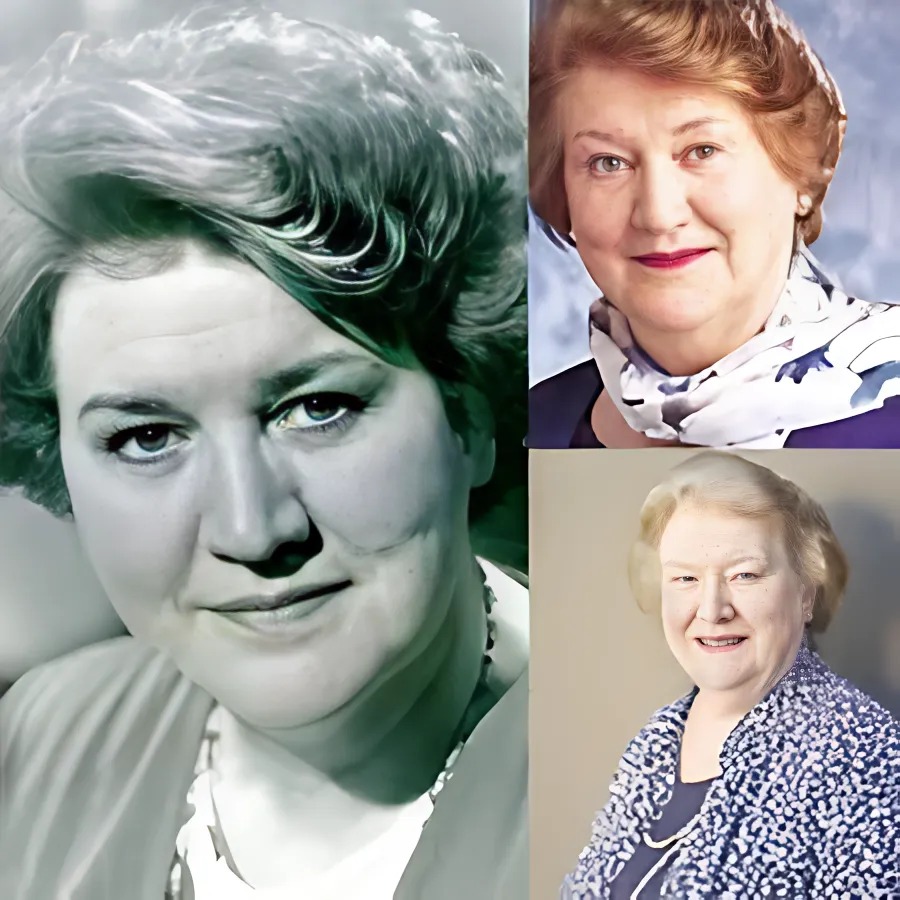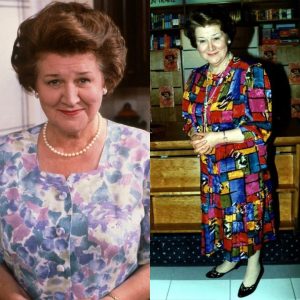A Royal Salute to a National Treasure: Dame Patricia Routledge Honoured for a Lifetime on Stage and Screen
In the gilded halls of Buckingham Palace, under the watchful gaze of history and heritage, an icon of British stage and screen was at last given the royal recognition that many believe was long overdue. Patricia Routledge, the indomitable star whose name is synonymous with wit, class, and theatrical brilliance, has been officially appointed as Dame Commander of the British Empire for her extraordinary contributions to theatre and charity.
At 88 years old, Routledge—a woman whose presence can light up both the grandest theatre and the humblest living room television set—was radiant as she received the prestigious honour from the Prince of Wales. But it wasn’t just medals and formality that filled the moment—it was emotion, respect, and a sense of legacy fulfilled.
“I’m still in a state of surprise and very thrilled,” Dame Patricia told the Press Association shortly after the ceremony. “And very thrilled that the Prince of Wales is here today because he just loves actors—and he is our much-appreciated patron of the Actors’ Benevolent Fund.”
The Prince, himself a lifelong supporter of the arts, greeted Dame Patricia not only with the official citation, but with genuine warmth and admiration. “He said, ‘At last somebody’s noticed,’” she recalled with a modest smile. “He said how pleased he was—and a little more.”
A Career of Unmatched Range and Dedication
To the millions who adored her as the unrelenting social climber Hyacinth Bucket (pronounced ‘Bouquet’, of course) in the beloved BBC sitcom Keeping Up Appearances, Dame Patricia is a comedic icon. The role transformed her into a household name, as audiences tuned in week after week to witness the misadventures of a woman determined to outclass everyone around her—whether they liked it or not.
But while Hyacinth may be her most recognizable character, it is far from her most defining. Dame Patricia’s career spans over six decades, encompassing a dazzling array of roles that testify to her breathtaking versatility. Long before she made the nation laugh, she was commanding rapt attention in theatres across the UK and beyond.

In 1968, she earned a Tony Award for her Broadway performance as Alice Challice in Darling of the Day. Two decades later, she received the prestigious Olivier Award for her role as the Old Lady in Leonard Bernstein’s operetta Candide. Between those milestones lies a treasure trove of theatrical triumphs: Shakespearean queens, musical heroines, and dramatic leading ladies—each imbued with Routledge’s signature intensity, intelligence, and charm.
And yet, when asked to name a favourite role, she resists the temptation. “I don’t do beloved roles,” she said plainly. “I’ve just had a wonderfully interesting time with so many roles. So many interesting plays.”
The Private Dame Behind the Public Persona
Though the nation knows her as Hyacinth—prim, proper, and forever striving for social prestige—those close to Patricia Routledge speak of a woman who is down-to-earth, private, and fiercely committed to her craft. Even in receiving her damehood, she approached the ceremony with grace and humour, noting that she would tuck the medal away in a drawer—though not before sharing it with friends.
“I shall show it to people at lunch, obviously,” she quipped, revealing that a celebratory gathering was on the agenda. Not for fanfare or publicity, but simply to mark the occasion in the company of those who have walked the journey with her. A lunch party for 20 guests—close friends, trusted colleagues, and perhaps a few lucky confidants—was her way of embracing the moment.
A Life of Service Beyond the Stage
While audiences have long celebrated Routledge’s theatrical prowess, fewer may know of her extensive work in charity. A committed supporter of the Actors’ Benevolent Fund, among other organisations, she has spent decades quietly giving back to the arts community that shaped her. Her damehood, then, is not just a recognition of her talent—it is an acknowledgment of her impact, her generosity, and the inspiration she has offered to generations of performers.
Indeed, her connection to the Prince of Wales extends beyond a shared love of theatre. As patron of the Actors’ Benevolent Fund, Prince Charles (now King Charles III) has worked closely with Routledge on initiatives to support aging and ailing performers, providing financial and emotional support to those in need.
A Moment of Cultural Significance
Dame Patricia’s honour comes at a moment when the UK is reflecting deeply on the importance of the arts, particularly in a post-pandemic world where theatres fought to keep their curtains raised and the creative industries battled for survival. Her elevation to Dame Commander is more than a personal accolade—it is a celebration of theatre itself, of the artists who breathe life into words, and the stories that shape who we are.
In Routledge, the nation sees the best of its cultural heritage: an actor who brings gravitas to comedy, humility to acclaim, and profound intelligence to every performance. She reminds us that great acting is not about celebrity—it is about service. Service to the story, to the audience, and, as she has demonstrated time and again, to the broader community of artists.
Looking Back and Looking Ahead
At 88, Dame Patricia Routledge shows no signs of retreating quietly into retirement. While she may not be treading the boards as frequently as she once did, her voice continues to resonate—through lectures, interviews, and mentorship. She remains a vital figure in the artistic landscape of Britain, a living link to a golden age of theatre and an enduring inspiration for those who follow in her footsteps.
For now, the medal may rest in a drawer. But the honour it represents—earned through decades of brilliance, resilience, and grace—will shine far beyond Buckingham Palace. And as the Prince of Wales so rightly said: at last, somebody’s noticed.
Would you like a downloadable version of this article or formatted layout suggestions for publishing?




